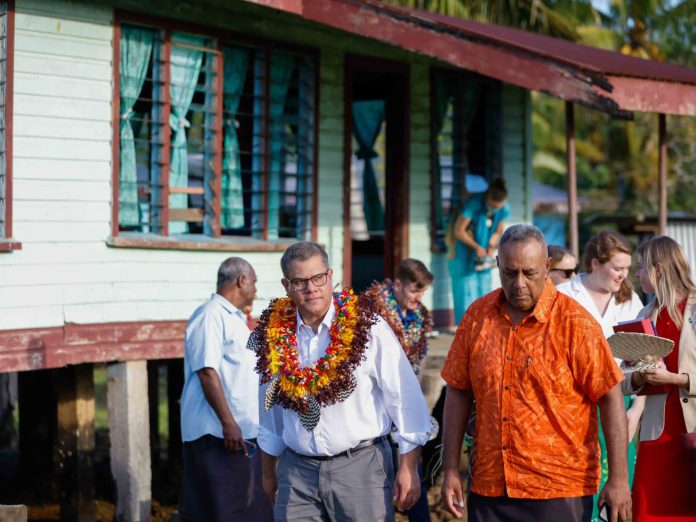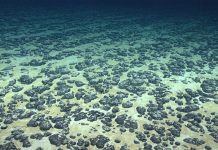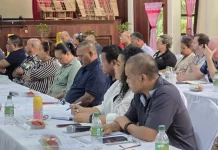The Pacific is forced to deal with the consequences of greenhouse gas emissions generated largely by emerging countries that are a long way from the region.
COP26 President, Alok Sharma, highlighted this Wednesday at the Pacific Islands Forum Secretariat, while speaking on the Glasgow Climate Pact and the road to COP27 which will be held later this year.
“This is not a crisis of your making, as your Prime Minister said ahead of COP23 when Fiji indeed held the presidency. Frank said, we’ve not caused this crisis – your nations have. We have trodden lightly on the earth, whereas you have trodden heavily and those comments friends should weigh very heavily on all world leaders.”
Sharma said while the leaders of these emerging countries talk the right talk, they are yet to walk the talk on the level of climate action that is required.
He said some of these countries are finally starting to experience the long-term risks posed by global warming as a result of occurrences in which their grassland and properties were destroyed by wildfires and temperatures that exceeded 40 degrees Celsius.
Sharma said these are consequences of climate change that they would hear from Fiji and other Pacific Island countries, which they were forced to adapt to a long time ago.
He said the Pacific Islands Forum reinforces the reality by declaring a climate emergency that reflects a threat to the overall well-being of Pacific Islanders and their ecosystems.
Sharma said we should continue to work together to cajole countries around the world—in particular, the major emitters—to honour the promises they have made and to turn commitments into action.
Meanwhile, COP26 President Alok Sharma witnessed firsthand the implications of climate change and rising tides in Fiji after visiting Buretu Village in Tailevu.
His one-day visit is a testament to his commitment to amplifying the messages that he has been delivering at various international meetings and conferences.
He said the challenges that Buretu villagers encounter daily are already evident that the impacts of climate change are taking a toll in Fiji, particularly in low-lying and coastal communities across the country.
Sharma stressed that he will take back these shared and lived experiences from vulnerable Fijians, especially in villages, and challenge his counterparts in the developed world on the need to render assistance and bolster climate financing.
“The message that I’ve heard is loud and clear, is that what matters for Fiji which is one of the countries on the frontline of climate change is to ensure we get support, support in terms of being able to adapt to the changing climate and you are seeing here of why support is needed to adapt to the changing climate, to make sure we get more finance flowing as well and of the issue of loss and damage which has also come up during this visit.”
Sharma said that Fiji has been at the forefront, hammering the biggest emitters and the rich countries to make sure they provide support as we strive towards achieving 1.5 degrees.
“It’s only when you come here and see it for yourself the impact of what you are experiencing. Work is being done, but we need to do a lot more and that message we need to keep hammering on every single occasion whether in the G7 Forums, or the G20 or the UN General Assembly or the Commonwealth Heads of meeting which I was at a few weeks ago.”
The COP President has also commended the resilience and passion shown by Prime Minister Voreqe Bainimarama, who never backed down from raising concerns for the Fijian people.
He said that Bainimarama and his counterparts in the regions have a very powerful voice to ensure that the region get proper ambition and action from the biggest emitters.
Sharma’s term as COP President will end towards the end of this year and will hand over his presidency role to Egypt during COP27.
SOURCE: FBC NEWS/PACNEWS













